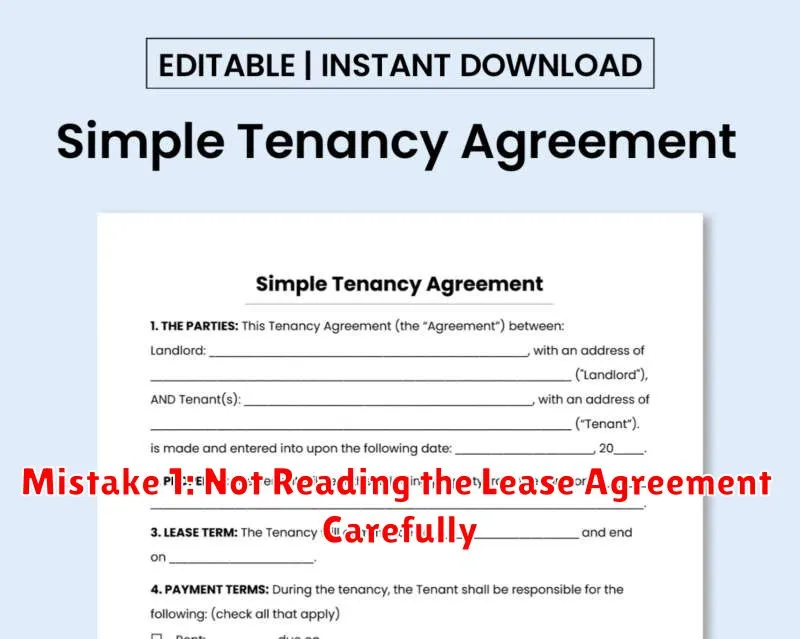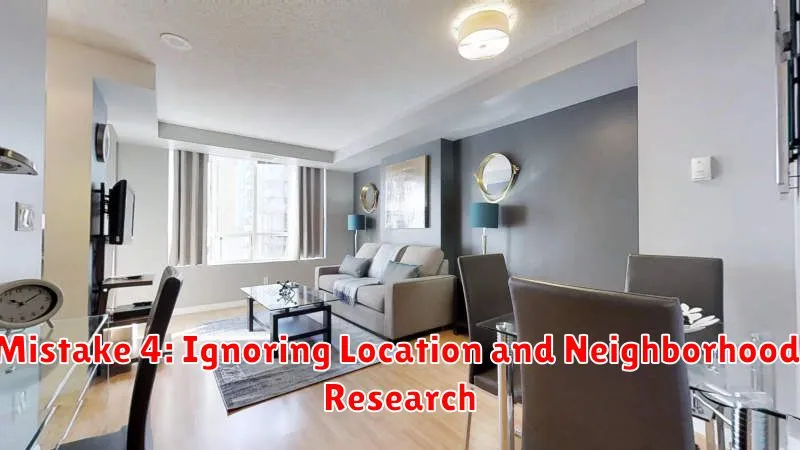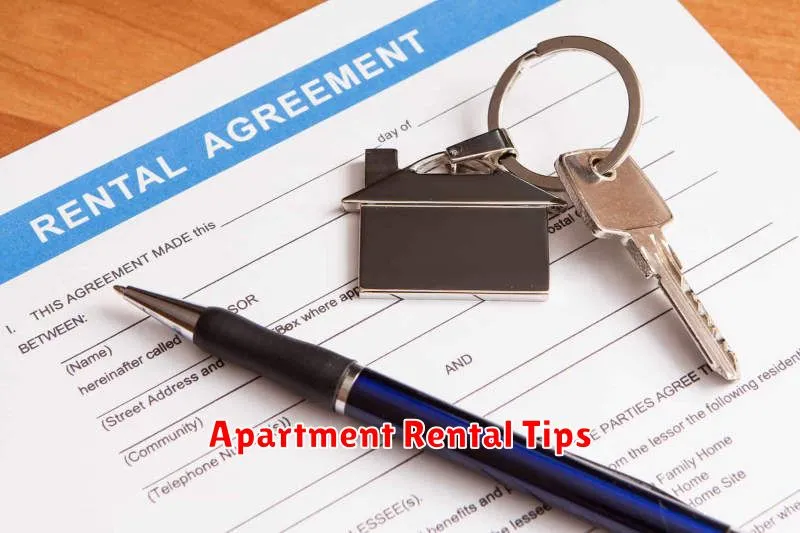So you’re ready to take the plunge and rent your first apartment or perhaps upgrade to a new place? That’s exciting! But before you sign that lease, it’s crucial to avoid common pitfalls. This guide will highlight 5 common mistakes to avoid when renting an apartment, helping you secure the perfect place without unnecessary stress or financial burdens. We’ll cover everything from overlooking crucial details in the lease to neglecting important apartment inspections, ensuring your renting experience is smooth and successful. Let’s dive in and make sure you’re prepared to find your dream apartment!
Introduction: Avoiding Apartment Rental Pitfalls
Renting an apartment can be an exciting but daunting experience. Careful planning and due diligence are crucial to avoid costly mistakes and ensure a smooth, enjoyable tenancy. This article highlights five common pitfalls many renters encounter, offering insights into how to navigate the rental process successfully and avoid potential headaches down the line. By understanding these common errors, you can make informed decisions, secure a suitable apartment, and protect yourself financially.
The rental market can be competitive, leading to rushed decisions. However, taking the time to thoroughly research properties, understand lease terms, and communicate effectively with landlords will significantly reduce the risk of unforeseen problems. This introduction sets the stage for exploring these key areas in detail, empowering you to make smart rental choices.
Mistake 1: Not Reading the Lease Agreement Carefully

Before you sign on the dotted line, carefully read your lease agreement. This seemingly simple step is often overlooked, leading to significant problems down the road. The lease is a legally binding contract outlining your responsibilities and rights as a tenant.
Pay close attention to the following: the length of the lease, the rent amount and due date, pet policies (if applicable), late fees, rules regarding guests, and procedures for repairs and lease termination. Understanding these details beforehand prevents misunderstandings and potential disputes with your landlord.
Don’t hesitate to ask your landlord for clarification on anything you don’t understand. It’s better to ask questions upfront than to deal with unexpected charges or conflicts later. Reading your lease thoroughly is the first step to a smooth and stress-free rental experience.
Mistake 2: Overlooking Hidden Costs and Fees
Renting an apartment often involves more than just the advertised monthly rent. Many renters fall victim to hidden costs and fees that significantly impact their budget. Failing to account for these extras can lead to financial strain and unexpected expenses.
Some common hidden costs include application fees, broker fees (if using a broker), security deposits (often equal to one or more months’ rent), pet fees (if you have pets), parking fees, and utility connection fees. Additionally, some landlords charge lease termination fees if you break your lease early. Moving costs should also be factored in, including truck rental, packing supplies, and potential movers’ fees.
Before signing a lease, meticulously review all associated documents to identify all potential costs. Don’t hesitate to ask the landlord or property manager for clarification on any unclear fees or charges. Creating a detailed budget that includes all anticipated costs will help you avoid unpleasant surprises and ensure you can comfortably afford your new apartment.
Mistake 3: Failing to Inspect the Apartment Before Moving In
Before signing that lease and handing over your security deposit, thoroughly inspect the apartment. This is crucial for protecting yourself from future disputes. Bring a notepad and pen to document everything.
Check for existing damage: scratches on walls, stains on carpets, malfunctioning appliances, and any other issues. Take photos or videos as evidence. Compare your findings with the provided inventory checklist (if one exists). If discrepancies exist, address them immediately with your landlord or property manager before moving in. Having these issues documented in writing before you move in will prevent you from being held responsible for pre-existing damage.
Don’t be afraid to point out even seemingly minor problems. A small crack in the wall today could be blamed on you later. A comprehensive inspection ensures that you’re not held responsible for pre-existing conditions and protects your security deposit. This proactive approach will save you potential headaches and financial burdens down the line.
Mistake 4: Ignoring Location and Neighborhood Research

Before signing that lease, thorough location and neighborhood research is crucial. Don’t just rely on the apartment’s photos; explore the area yourself. Consider factors like commute time to work and school, proximity to grocery stores, parks, and other amenities you frequently use.
Safety is paramount. Research crime rates in the neighborhood using online resources or by talking to residents. Pay attention to the overall vibe – is it quiet and family-friendly, or bustling and vibrant? The right neighborhood significantly impacts your quality of life.
Also, consider future plans. If you anticipate starting a family or changing jobs, ensure the location remains suitable for your evolving needs. Investing time in upfront research prevents potential future headaches and ensures you choose a place truly suited for you.
Mistake 5: Not Negotiating Rent Terms
Many renters mistakenly believe that rent prices are fixed and non-negotiable. This is often untrue! Negotiating rent is a surprisingly effective way to save money. While landlords may not always budge on the advertised price, it never hurts to ask.
Consider these negotiation tactics: Propose a shorter lease term to incentivize the landlord. If the unit has been on the market for a while, point this out and suggest a slightly lower rent to reflect its availability. If you’re a reliable tenant with excellent references, highlight this as a reason for a rent reduction.
Remember to be polite and professional throughout the process. A well-reasoned and respectful request can go a long way. Don’t be afraid to walk away if they’re unwilling to negotiate at all – there are plenty of other apartments available. Even a small reduction in your monthly rent can result in significant savings over the length of your lease.
Conclusion: Ensuring a Smooth Apartment Rental Process
Renting an apartment can be stressful, but avoiding common mistakes significantly reduces headaches. By thoroughly researching potential apartments, understanding your budget and needs, communicating effectively with landlords or property managers, carefully reviewing lease agreements, and securing renter’s insurance, you can ensure a smooth and positive rental experience. Remember, preparation and clear communication are key to finding the perfect place and avoiding unforeseen problems.
Taking the time to address these five common mistakes will save you time, money, and stress in the long run. A well-planned apartment search will lead to a more enjoyable living experience. Happy apartment hunting!

